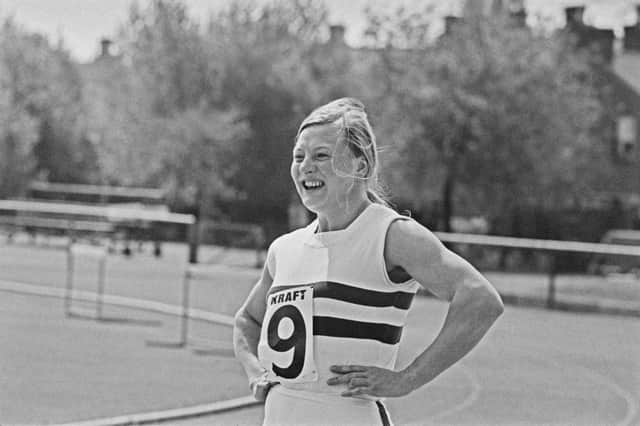Paul McElhinney: Munich 1972 – an Olympic clash of sport and politics

Names like Mark Spitz, Shane Gould, Olga Korbut, Valery Borzov and Dave Wottle emerged from these Olympics as household names, such was the level of their performances there. Local girl Mary Peters became a pentathlon gold medal hero and for many years hoisted the flag of the sport in Northern Ireland. As a result of her successes at the highest profile and most watched Olympic Games, Mary has joined the likes of George Best, Fred Daly, Danny Blanchflower and others in the pantheon of Northern Ireland sports stars.
Unforgettable from this year’s Olympics was the kidnapping and murder of eleven Israeli athletes by the Black September organization. Despite threats of a sequel, despite the ugly remnants of these terrorist attacks, the sporting events finally took place at official urging.
What shocked the world was all too familiar to a population of Northern Ireland who had been plagued by a violent terrorist campaign for several years. The world watched on their television sets as the horrific terror drama unfolded. The sport lost its innocence during those fortnight as it unknowingly got caught up in the murky world of international politics. Now we’re almost used to having mass terrorists and other violent events beamed into our living rooms. Munich in 1972 is seen as just one in a series of sad and vicious tragedies. Back then it was unique.
Fortunately, the 1972 Olympics will not be remembered for just this incident. An incomparable potpourri of sporting excellence was shown.
Young, tiny Russian gymnast Olga Korbut mesmerized the world with her performances in a variety of gymnastics disciplines.
In the pool, the name Mark Spitz became legendary. Spitz, the US swimmer, won a record seven gold medals at those Olympics, a record that would stand until 1996 when it was broken by Mike Phelps in Atlanta. Australian Shane Gould won three gold medals in swimming in Munich.
Valery Borzov, the burly, explosive Soviet sprinter (from Ukraine), won both the 100 and 200 meters, a not-so-common one-two, and in the process clinched at least one psychological victory over the Americans in the ongoing Cold War of the era . Lasse Viren, the fierce Finn, has completed both the 5,000 and 10,000 meters as only a select few can.
Also in the field of athletics was the remarkably eccentric Dave Wottle, who excelled in the 10K, characterized by his awkward gait and flashy red cap.
Also of note was the thrilling men’s basketball final between the USA and the USSR, which is considered the most competitive basketball game of all time at the Olympic Games. The USSR’s narrow and disputed victory gave them further bragging rights in the ongoing Cold War conflict.
Of course, of greatest local interest was smiling, good-natured looking Mary Peters’ gold medal win in the women’s pentathlon. Her head-to-head rivalry with the poetic-sounding German athlete Heide Rosendahl turned into an epic fight right to the end. Refreshingly absent was any Anglo-German animosity between the two from World War II, with any rivalry based on healthy sporting competitiveness. Instead of terrorist incidents being the mainstay of the media, the world was briefly able to witness a positive achievement emerging from the province. Mary Peters was the face of this alternative perspective and a worthy ambassador.
The 1972 proceedings also marked a “coming of age” for the Olympics. After the terrorist attacks, security was no longer a side issue, a trend that has intensified in subsequent years and especially since 9/11.
The debate over politics in sport has raged on as the two areas of activity inevitably overlap. Many point to the contaminating effect of politics on sport, but is it realistic to strictly demarcate the two in a highly interdependent and interconnected world?
What is certain is that the world has seen no other Olympics (before or after) like the one that took place in Munich in 1972. For sheer drama, excitement, and personal and team accomplishments, it is second to none.
Munich was previously famous for beer hall coups and a failed peace initiative leading up to World War II. Before Munich, perhaps the most notable Olympic Games were held in another German city, Berlin, in 1936, presided over by Adolf Hitler.
With many examples of sporting prowess on display, and set against an explosive political and terrorist background, the 1972 Olympic Games indelibly marked its reputation as the most remarkable Olympic Games of all time.
• Paul McElhinney, lecturer, writer and former official in the Department of the Taoiseach, has written many articles in Irish and international magazines and is the author of ‘Lion of the RAF’, a biography of Air Marshal Sir George Beamish.